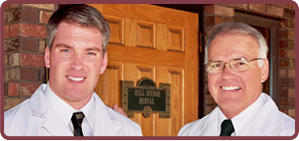 What do you think is the most common chronic disease among children ages five to 17? If you guessed allergies or asthma, you’re wrong. Likewise the correct answer is not gastrointestinal problems or headaches. The most common chronic disease among our youngest citizens is tooth decay, with some 59 percent of children affected. The statistics do improve as people mature and are capable of taking better care of their teeth. But what really can be done to prevent cavities? Actually, there’s quite a bit you and your family dentist in Superior, WI, can do to help you avoid tooth decay. Read on to find out what the dentists at Hill Avenue Dental frecommend.
What do you think is the most common chronic disease among children ages five to 17? If you guessed allergies or asthma, you’re wrong. Likewise the correct answer is not gastrointestinal problems or headaches. The most common chronic disease among our youngest citizens is tooth decay, with some 59 percent of children affected. The statistics do improve as people mature and are capable of taking better care of their teeth. But what really can be done to prevent cavities? Actually, there’s quite a bit you and your family dentist in Superior, WI, can do to help you avoid tooth decay. Read on to find out what the dentists at Hill Avenue Dental frecommend.
Brush and Floss to Prevent Cavities
Probably the most important and effective step you can take to stop tooth decay in your mouth and in the mouths of your family members is to make sure everyone brushes and flosses daily. When you brush, use a soft toothbrush and fluoride toothpaste. And take your time! A good brushing should last at least two minutes—that’s really not much time to sacrifice for a healthy smile.
Flossing is equally important as brushing. When you brush, you are removing debris and plaque from the surfaces of your teeth. Flossing, on the other hand, removes plaque from between teeth. That plaque contains bacteria that cannot only lead to cavities, but gum disease, too.
Dental Checkups with your Dentist in Superior, WI
In conjunction with your oral hygiene care at home is the dental checkup Drs. Clark and their team perform at Hill Avenue Dental. Each checkup includes a thorough cleaning as well as a careful examination of your teeth and gums. Depending on the condition of your teeth, our dentists may recommend a fluoride treatment or dental sealants to help fight decay.
Fluoride is a natural mineral that helps to strengthen the outer enamel layer of your teeth. This layer is constantly battling bacteria that excrete acids and other toxins that lead to tooth decay. A fluoride treatment is applied directly to your teeth as a foam or gel and rinsed away a few minutes later.
Dental sealants, on the other hand, can remain on your teeth for years and years. This protective layer goes on as a liquid and is then quickly hardened with a curing light. Sealants form a solid barrier between teeth and bacteria.
Call Your Family Dentist Today
If you’d like more ideas about how you can help your family avoid tooth decay, or if it’s time to schedule a checkup, then contact Hill Avenue Dental in Superior, WI.









